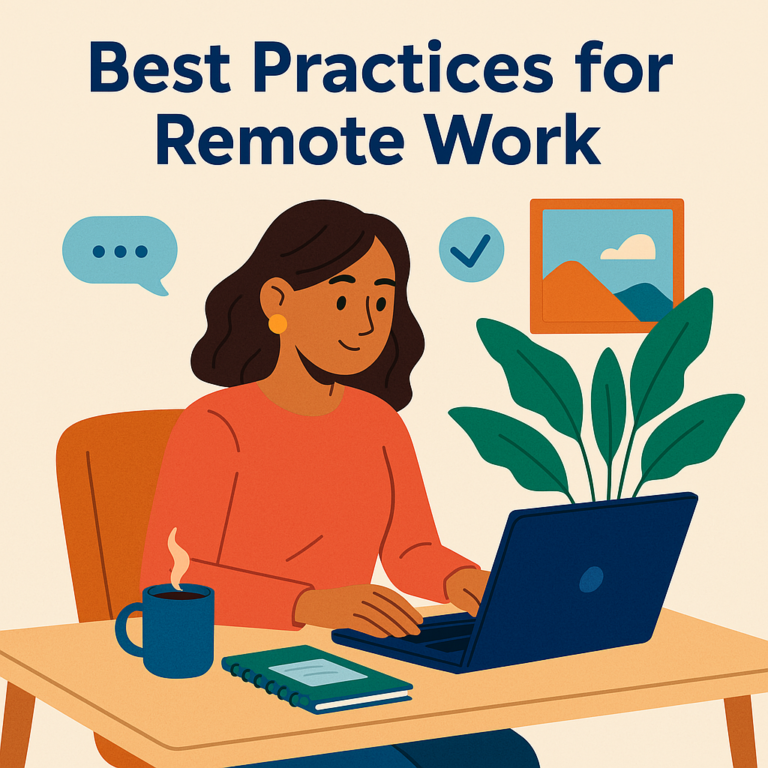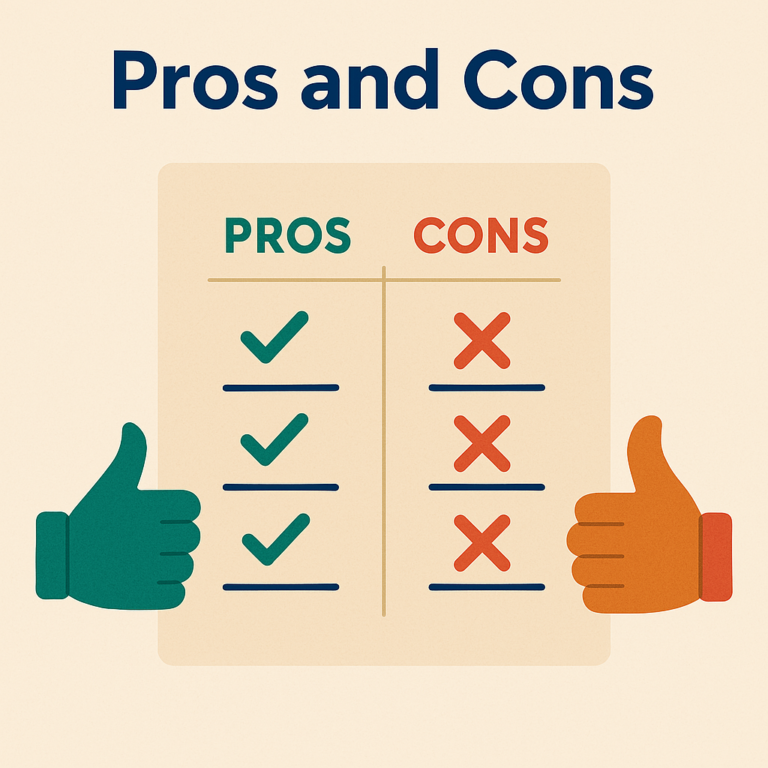How to Find Affiliate Marketing Jobs 10 Pro Tips
We may earn money or products from the companies mentioned in this post.
Affiliate marketing jobs offer great flexibility and a lot of potential for individuals looking to make their mark in the digital marketing industry.
While many job seekers are familiar with affiliate programs as side projects, there’s now a growing number of full-time opportunities in this field.
This article explores a range of topics in affiliate marketing jobs, outlining actionable advice, best practices, and clear steps to boost your career.
If you’re planning to step up in a competitive field, understanding the nuances and diverse roles is very important for long-term success.
Understanding the Landscape of Affiliate Marketing Jobs Affiliate marketing has grown into a sophisticated and competitive industry. Many companies run affiliate programs, and specialized roles have emerged as the industry matured.
There are roles that span technical development, content creation, digital strategy, and analytics.
The diversity in job functions means that you don’t have to be a tech expert to find a role in this area; skills in writing, research, or marketing management can work just as well.
The challenge is to recognize where you fit in this space.
The industry is broad, ranging from entry-level positions to roles that require deep strategic planning and data analysis.
By understanding the industry’s nuances, you can better position yourself in the market and choose the right opportunities.
Whether you are transitioning from another marketing field or starting out fresh, honing your skills to meet the demands of affiliate marketing is key.
This section aims to provide perspective on the different areas of affiliate marketing jobs, the variety of roles available, and the growth potential inherent in this sector.
In today’s digital age, staying current with market trends and technology is essential.
Practical advice, including case studies and success stories, can help you shape your career path in this evolving field.
Furthermore, the landscape is continuously shifting due to emerging technologies and new consumer behaviors.
Being aware of these changes and preparing for them not only helps you secure a role but also positions you as a proactive candidate ready to tackle future challenges.
Detailed research and staying informed through trusted sources are vital steps in framing your approach to a career in affiliate marketing.
Where to Look for Serious Affiliate Marketing Jobs If you are serious about landing a role in affiliate marketing, it pays to know where to look.
Various online platforms have dedicated sections for digital marketing and affiliate job listings.
Websites like LinkedIn, Glassdoor, and Indeed provide valuable listings, but some lesser-known niche job boards specialize in affiliate marketing roles.
The most reliable listings often come directly through affiliate networks and specialized groups.
Popular affiliate networks such as CJ Affiliate, ShareASale, and Rakuten frequently have career sections where companies post opportunities.
Other sites like AffiliateFix and ABestWeb have vibrant communities and job boards that focus on affiliate marketing.
In addition to network job boards, industry-related forums and specialized newsletters can offer insight into unlisted opportunities.
Many businesses prefer to hire through referrals or word of mouth within established networks.
Investing time in building your online presence and connecting with industry professionals can lead to job opportunities that might not appear on traditional job boards.

How to Find These Opportunities
Regularly check niche job boards dedicated to digital marketing and affiliate roles. Sign up for industry newsletters and follow affiliate marketing groups on social media.
Engage in affiliate forums to learn about hidden opportunities.
Consider direct outreach to companies and networks known for strong affiliate programs. In today’s competitive environment, knowing where and how to search is really important.
Spending extra time refining your online profiles, tailoring your resume for each posting, and making direct connections can make a big difference in landing your ideal position.
Additionally, consider attending virtual job fairs and webinars dedicated to digital marketing; these are great platforms to meet recruiters and hiring managers who prioritize industry expertise.
Building and Stepping Up Your Affiliate Marketing Portfolio A strong portfolio is often the ticket to attracting quality affiliate marketing job offers.
In this digital era, your portfolio represents your abilities and demonstrates your understanding of marketing principles to potential employers.
Even if you’re new to affiliate marketing, compiling case studies, performance metrics, and tangible examples of your work is extremely useful.
Your portfolio can include examples such as content you have written, campaigns you have managed, or even detailed analytics reports that show your ability to drive traffic and conversions.
Even blog posts or small projects can provide a narrative of your work ethic and expertise. This not only builds credibility but also shows you are invested in your development.
It is very important to include measurable outcomes and document every successful campaign.
Take time to clearly outline the challenges you faced, the strategies you employed, and the results achieved.
By painting a vivid picture of your professional journey, you set yourself apart in a competitive market.

Steps to Create a Winning Portfolio
Gather samples from previous roles, projects, or freelance work.
Include measurable results, such as percentage increases in traffic or sales figures where possible.
Organize your work into clear categories: SEO content, email campaigns, data analysis, and social media marketing.
Update your portfolio regularly to reflect your most recent and relevant work.
In addition to showing work samples, consider adding detailed client testimonials and narratives that explain your thought process.
Writing a brief commentary for each project can help potential employers get a sense of how you approach problem-solving and overcome challenges.
This layer of detail not only deepens your professional narrative but also builds trust with prospective employers.
Networking and Professional Growth in Affiliate Marketing Networking is an important part of climbing the ladder in affiliate marketing jobs.
Building and nurturing relationships with industry professionals can open doors to opportunities that aren’t available through standard job postings.
Whether it’s joining professional groups online or attending conferences, expanding your network is very advantageous.
Industry networking events, online communities, and professional associations provide the chance to learn from experts and share your own experiences.
From webinars to meetups, there are various platforms where you can connect with potential mentors and peers in affiliate marketing.
These connections may lead to collaborations, referrals, or even direct job opportunities.
It is very important to approach networking with genuine intent and not simply as a transactional activity.
Investing a bit extra time in relationship-building can pay tremendous dividends over the course of your career.
Social media platforms are a great starting point, and many professionals have found that consistent, thoughtful engagement can shift the course of their careers.

Networking Tips
Attend industry events and participate in online forums dedicated to affiliate marketing.
Follow and engage with leading affiliate marketers and companies on platforms like LinkedIn and Twitter.
Join digital marketing groups where discussions about the latest trends take place.
Share your work and insights regularly to help build your professional brand.
Beyond active engagement on social media, consider setting up one-on-one virtual meetings or phone calls with professionals whose work you admire.
These interactions not only deepen your understanding of the industry but also create lasting bonds.
Regular follow-ups and exchanges of knowledge are strategies that can truly enrich your professional growth in affiliate marketing.

10 Pro Tips to Find Hidden Affiliate Marketing Jobs
- Niche Down Deep: Don’t just look for “affiliate marketing manager” roles. Target hyper-specific niches like “affiliate marketing specialist for SaaS companies in the health tech space.” Less competition, higher chance of standing out.
- Reverse Engineer Top Performers: Identify successful affiliate marketers in your desired niche on LinkedIn or through industry events. See where they worked and if those companies are hiring.
- Leverage Your Existing Network (Beyond the Obvious): Tap into your network of former colleagues, even from seemingly unrelated roles. They might know companies quietly building out affiliate programs.
- Attend Industry-Specific Events (Even Virtually): Conferences and webinars often have job boards or informal networking opportunities that aren’t advertised elsewhere.
- Become a “Micro-Influencer” in Your Target Niche: Even a small but engaged following on a relevant platform can make you an attractive candidate for companies seeking authentic promotion.
- Proactively Pitch Companies Without Public Openings: Identify companies with strong affiliate programs and send a tailored proposal outlining how your expertise can benefit them.
- Monitor Competitor Job Boards (Indirectly): Keep an eye on job postings from companies you admire. Even if they aren’t hiring you, it signals they value affiliate marketing talent.
- Offer Specialized Skills as a Consultant First: Sometimes a short-term consulting gig can turn into a full-time role once they see your value firsthand.
- Go Beyond Job Boards: Explore Communities and Forums: Online communities and forums dedicated to specific industries often have hidden job opportunities shared within the group.
- Build a Portfolio of Successful Affiliate Projects (Even Personal Ones): Showcase tangible results from your past affiliate marketing endeavors, even if they were personal projects. This speaks volumes.

Essential Skills and Tools for Affiliate Marketing Jobs
Securing an affiliate marketing job requires a blend of technical aptitude and marketing savvy.
While specific skills may vary depending on the role, there are a number of core competencies that are widely applicable.
Familiarity with digital marketing tools and data analysis often plays a major role in many of these positions.
For instance, learning search engine optimization (SEO) techniques, content management, and even basic coding can go a long way.
Additionally, strong copywriting skills and the ability to analyze performance metrics are very useful.
Many professionals also find that understanding Google Analytics, link tracking software, and content management systems (CMS) can make them especially appealing candidates for these roles.
When considering the skills required, always keep in mind that continuous learning is very important.
The digital landscape evolves quickly, and staying current with emerging tools and strategies is part of the job description.
Attending workshops, online courses, and industry webinars can help you get a feel for cutting-edge technologies and trends.

Key Skills and Tools
Digital Analytics: Proficiency with tools like Google Analytics to interpret data and optimize campaigns.
SEO and SEM: A strong understanding of search engine optimization and search engine marketing practices.
Content Management: Experience with blogs, CMS systems, and content strategies. Copywriting and Communication: The ability to create engaging content that drives conversions.
Technical Tools: Familiarity with affiliate networks and tracking software to help monitor and improve programs.
Moreover, don’t hesitate to explore new platforms and digital tools that can give your campaigns an extra boost.
Experimenting with various software can also help you understand what technology best suits the needs of your projects.
This spirit of continuous improvement not only strengthens your profile but also paves the way for advanced roles as the industry grows and transforms.

Crafting a Standout Resume and Cover Letter for Affiliate Marketing
The first impression you make on prospective employers in the affiliate marketing industry often comes through your resume and cover letter.
Tailoring these documents to highlight relevant skills, experiences, and successes is very important.
Employers look for clear evidence that you can drive results and handle digital challenges effectively.
Your resume should be streamlined and focused on your achievements, particularly in digital marketing or similar roles.
Incorporating concrete figures to showcase improvements, such as changes in conversion rates or traffic spikes, serves as a powerful testament to your skill set.
Always consider giving specific examples that relate directly to the challenges faced in previous roles.
A compelling cover letter provides you with the opportunity to explain why you are the perfect fit for both the position and the industry.
Highlighting your passion for affiliate marketing and providing specific examples of past successes can set you apart from other candidates.
A cover letter is not just about listing achievements; it is a narrative that connects your experience with the company’s vision.

Tips for a Standout Resume and Cover Letter
Tailor your content to the job description and incorporate key digital marketing terms. Include bullet points that detail measurable achievements.
Mention certifications or training courses you have completed that relate to affiliate marketing.
Keep the cover letter concise, focusing on one or two major accomplishments that directly relate to the job.
It is also a good idea to revise your documents periodically, keeping them updated with your latest significant projects.
Regularly reviewing feedback and even seeking professional advice on your resume can help you refine your narrative, making your application stand out to recruiters and hiring managers alike.

Interview Preparation:
Questions and Best Practices Once you secure an interview for an affiliate marketing job, preparation becomes key.
Employers in this field often ask about your understanding of industry trends, specific campaign experiences, and your approach to measuring and improving performance.
Being prepared with thoughtful responses and concrete examples sets you apart as a knowledgeable candidate.
Practice common questions such as how you would manage multiple affiliate programs or how you analyze data from various marketing channels.
It is very important to support your claims with real data and examples. Interviewers appreciate candidates who show initiative and back up their responses with clear evidence of past successes.
Your interview preparation should also include preparing your own questions about the company’s affiliate strategy and growth prospects.
This two-way dialogue shows that you’re not only interested in the role, but you also understand the broader business context.
Taking extra time to research the company and its competitors can give you a strategic edge during discussions.
Common Interview Topics and Questions
- Discussing previous campaigns and the results achieved.
- Explaining your process for optimizing affiliate performance.
- Describing which analytics tools you are most comfortable with and why.
- Outlining how you stay current with industry trends and emerging technologies.
- In preparation, consider conducting mock interviews with peers or mentors. This practice can help you refine your responses and build confidence.
Remember that interviews are as much about you understanding the company as the company understanding your potential contributions.
Managing Multiple Affiliate Marketing Projects Working in affiliate marketing often means juggling several projects at once.
Whether you’re managing multiple campaigns or working with various affiliate programs, strong organizational skills are very important.
Many professionals learn to use project management systems and planning tools to keep track of deliverables and deadlines.
One effective strategy is to allocate specific days or time slots to different projects.
This minimizes distraction and allows you to maintain focus on one task at a time.
Being organised not only increases your efficiency but also helps ensure that your campaigns run smoothly and deliver consistent results over time.
Additionally, it is very important to quickly assess project performance and be ready to switch up strategies when necessary.
Monitoring key performance indicators on a regular basis lets you adjust tactics on the fly, ensuring that you consistently meet the expectations of both your team and your employers.

Effective Project Management Tips
- Use digital tools like Trello or Asana to keep track of tasks and deadlines.
- Break larger projects into smaller, more manageable pieces.
- Set aside time for regular reviews and adjustments based on performance data.
- Communicate frequently with team members and stakeholders to ensure everyone understands their role.
Building a system that works for you can also involve calendars, reminders, and regular strategy sessions with colleagues.
In a fast-paced industry like affiliate marketing, being organized can make the difference between success and missed opportunities.
Transitioning from a Blogger or Influencer to Affiliate Marketing For many people, the move from blogging or influencing to a full-fledged affiliate marketing professional is a natural progression.
Most bloggers already possess skills in content creation, SEO, and digital engagement that apply directly to affiliate marketing.
This transition can open up a range of career opportunities as you move from hobbyist or semi-professional status to a dedicated role in the industry.
One of the key benefits of this transition is the ability to make the most of your existing audiences by creating more structured, revenue-focused campaigns.
Whether you’ve been promoting products as part of a blog or partnering with sponsors on social media, these experiences serve as a valuable foundation.
It is very important to build on your strengths and gradually add new skills such as data analysis and paid advertising to broaden your professional repertoire.
If you’re considering this move, take the time to evaluate your current skill set and identify areas for growth.
This might include learning more advanced analytics, expanding into paid advertising strategies, or better understanding the technical aspects of affiliate networks.
This period of transition is an exciting adventure that requires dedication, planning, and a willingness to learn.

Strategies for a Smooth Transition
- Review and document your past campaigns, highlighting achievements and areas where you can improve.
- Attend training or online courses that focus specifically on affiliate marketing strategies.
- Seek feedback from industry peers or mentors who have successfully made the transition.
- Experiment with both organic and paid promotional channels to build a balanced approach.
- Taking a structured approach to your transition can help transform your previous experience into a powerful asset in your new role.
- With determination and strategic planning, you can smoothly switch paths and establish a successful career in the affiliate marketing arena.
- Making the Most of Remote Work in Affiliate Marketing
- Remote work is a key feature of affiliate marketing jobs.
Many roles in this industry offer the flexibility to work from anywhere, making it appealing to those who prefer a non-traditional work environment.
This flexibility gives you the opportunity to design a work schedule that fits your lifestyle while still driving professional success.
Embracing remote work means setting up a dedicated workspace and establishing daily routines to stay productive throughout the day.
It also involves making the most of digital tools to communicate with teammates, organize projects, and track performance across various campaigns.
When managed well, the remote work environment can lead to increased autonomy and job satisfaction.
Maintaining discipline and organization is very important when your home doubles as your office.
Integrating regular breaks and setting clear boundaries between work and personal time will help keep distractions at bay and maintain high productivity levels.
In many cases, remote work allows you to tap into the creative energy that comes from having a flexible schedule, which can translate into next-level cool work results.

Best Practices for Remote Work
- Create a designated workspace that minimizes distractions.
- Outline a daily schedule with specific work hours and regular breaks.
- Use collaboration tools to stay connected with team members.
- Maintain a healthy work-life balance by setting clear boundaries between professional and personal time.
For those new to remote work, consider starting with small adjustments to your routine, then gradually dialing in a system that works best for you.
Consistently reviewing and refining your approach will help you remain efficient and effective, leading to long-term success in your affiliate marketing role.
Final Thoughts
The world of affiliate marketing jobs offers diverse opportunities for growth, learning, and income.
From understanding the complex job landscape to mastering the art of networking and portfolio development, every step you take helps lay a solid foundation for your career.
A career in affiliate marketing isn’t just about earning money; it is about building a future where your creativity and technical skills come together seamlessly.
What begins as a side hustle can evolve into a rewarding full-time profession.
Success in this field requires continuous improvement, skill development, and proactive career building, whether through remote work or high-impact projects via affiliate networks.
Spending extra time on research, networking, and self-improvement can truly set your path apart from the ordinary.
For anyone looking to expand their horizons in digital marketing, affiliate marketing presents a path that offers both flexibility and significant potential for financial and personal growth.
These steps can help guide your affiliate marketing career decisions for a successful future.
With dedication and ongoing learning, you can excel in affiliate marketing and align your career with your skills and ambitions.
Taking the time now to refine your approach and build a robust professional network can lead to remarkable opportunities down the road.
Bottom line: A career in affiliate marketing is very important for those who want to combine creative freedom with strategic, results-driven work.
By following the tips and strategies discussed here, you can step confidently into a future filled with possibility and professional growth.
Here are 5 pros and 5 cons for the heading “How to Find Affiliate Marketing Jobs: 10 Pro Tips”:

Pros:
- Clear Focus: The heading directly tells you what the article is about.
- Actionable Advice: The phrase “10 Pro Tips” suggests practical and helpful information.
- Addresses a Need: People looking for affiliate marketing jobs will likely click.
- Sense of Expertise: “Pro Tips” implies you’ll get advice from experienced individuals.
- Manageable Length: Ten tips feels like a reasonable amount of information to digest.
Cons:
- Potential for Over-Promise: The tips might not be as “pro” or helpful as expected.
- Could Be Too Basic: Experienced individuals might find the tips too introductory.
- Might Not Be Unique: Many articles offer tips on this topic.
- Risk of Being Generic: The tips might be common knowledge rather than insightful.
- “How-To” Can Feel Overdone: Some readers might be tired of “how-to” content.
FAQ
Q: What exactly are affiliate marketing jobs?
A: Affiliate marketing jobs involve promoting other companies’ products or services and earning a commission for every sale or lead you generate.
Q: Where are the best places to look for affiliate marketing job openings?
A: You can find these jobs on job boards, company websites with affiliate programs, and professional networking platforms like LinkedIn.
Q: Do I need specific experience to get an affiliate marketing job?
A: While experience is helpful, many entry-level positions exist. Highlighting skills like marketing, content creation, and communication can be beneficial.
Q: What kind of skills are most important for success in affiliate marketing?
A: Key skills include digital marketing, content writing, SEO, social media management, and data analysis.
Q: How can these “10 Pro Tips” help me land an affiliate marketing job?
A: The 10 pro tips likely offer actionable advice on where to search, how to network, what skills to highlight, and how to stand out to potential employers.
Thank you for reading, and we hope you find the insights valuable and thought-provoking.
I would much appreciate it if you could kindly leave your comments and questions below.
Thank You For Stopping By Once More
Till The Next Time
Elke
Author






